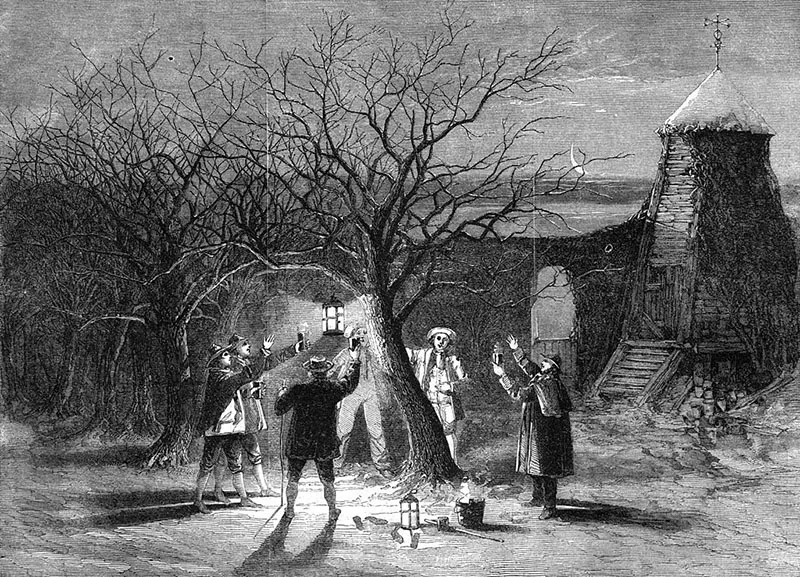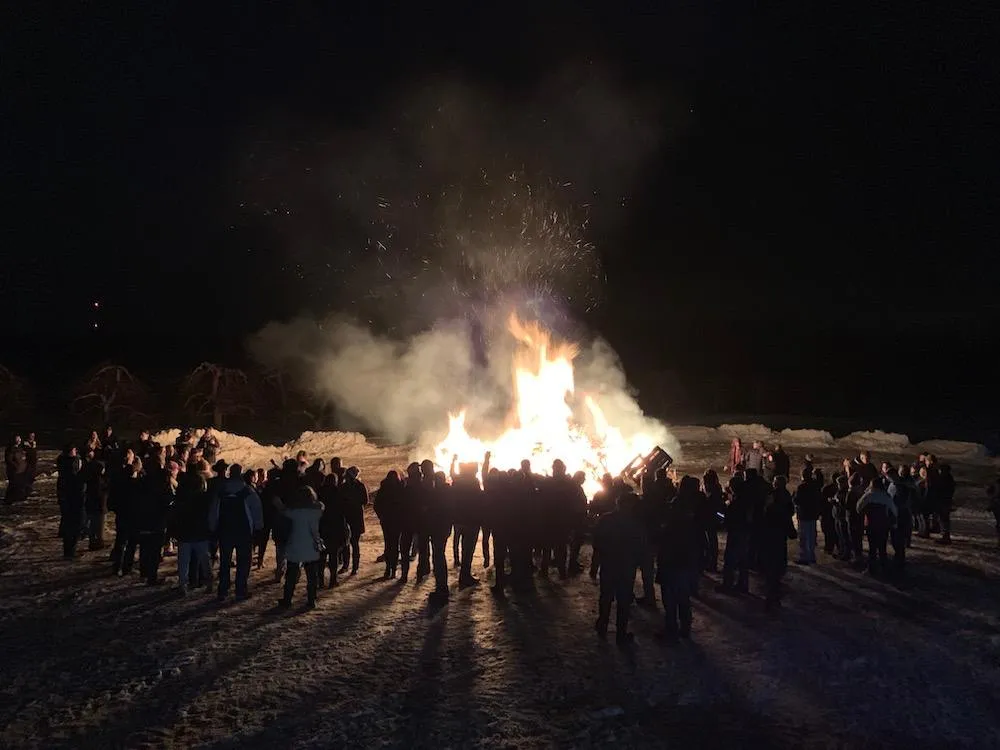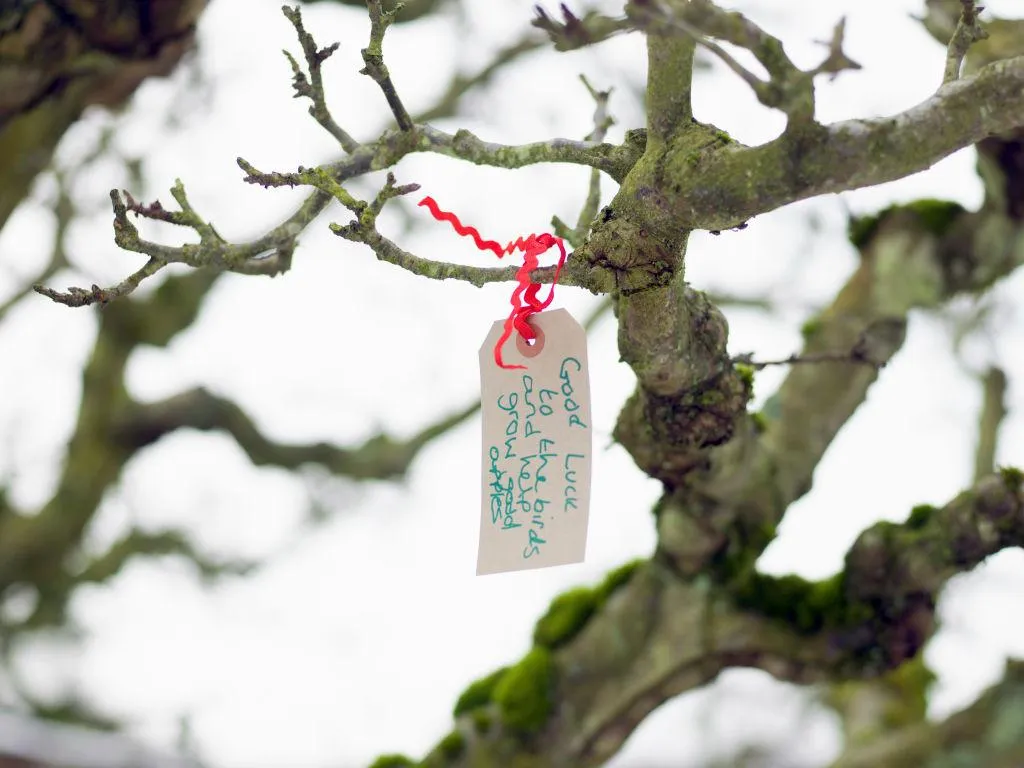New York’s Cideries Bring the Tradition of Wassailing to the Finger Lakes
Common in England, the practice of toasting to the health of the orchard has hopped the pond
/https://tf-cmsv2-smithsonianmag-media.s3.amazonaws.com/filer/df/54/df54ade2-fadf-4a57-a488-24dfe7198aea/2qm9b-oq.jpg)
“Here We Come A-wassailing” has been a popular Christmas anthem since the first English carolers sang it sometime in the mid-19th century. But like many song lyrics, the true meaning behind the carol has been lost over the years. So what exactly does wassailing mean? A group of cideries in upstate New York is working to answer that very question. For the past several years, cider makers in the Finger Lakes region have been holding wassailing festivals each winter in their apple orchards and inviting the public to join in the festivities.
The practice of wassailing dates back to medieval England; it is an Anglo-Saxon tradition that began as a way for farmers and villagers to help ensure a good apple harvest the following year in their rural communities. Armed with noisemakers like pots and pans and singing at the top of their lungs, revelers would travel on foot in a procession from their villages to local orchards to make a ruckus on the Twelfth Night (January 5). The annual ritual was a way to ward off evil spirits lurking in the orchards and bless the trees so that they would bear fruit in the fall, while also drinking copious amounts of wassail, a hot mulled cider spiked with various spices, such as cinnamon, nutmeg and cloves. (Wassail or waes hael is a toast that translates to “be well.”) As the carol repeats, "Love and joy come to you, and to your wassail, too, and God bless you, and send you a Happy New Year, and God send you a Happy New Year." Besides the carol, wassailing pops up in literature throughout history, including a mention in the Old English poem "Beowulf" that reads, "Then at the dawning, as day was breaking, the might of Grendel to men was known; then after wassail was wail uplifted, loud moan in the morn."

While wassailing has remained a common celebration in England, the festivities aren’t quite as common across the pond—something New York cider makers are hoping to change. One such person is Luke DeFisher, a cidermaker with Rootstock Ciderworks, a cidery located in Williamson, New York, that his father, David DeFisher, founded in 2012. The DeFishers are fourth-generation apple growers and today tend more than 500 acres of orchards in the lush countryside just outside of Rochester. In 2014, they hosted their first wassailing festival.
“My father had traveled abroad to visit cideries in the United Kingdom to learn more about their history,” DeFisher says. “One of the instructors got into how cider is celebrated and that’s how he learned about wassailing.”

Pulling from the traditional pagan ritual, Rootstock’s event included the singing of carols and plenty of noisemaking, but the centerpiece was a bonfire, which was made using cuttings from the property’s wealth of apple trees.
“We also tie in the tradition of wearing costumes, such as masks made to look like animals,” he says. “It’s a way for people to not only enjoy our cider, but also learn about the deep roots and history of cidermaking.”
Another family-owned cidery that will be holding a wassailing festival this winter is Redbyrd Orchard Cider, located 67 miles south of Williamson in Trumansburg. With its first seedlings planted in 2003, Redbyrd began selling cider in 2010, turning its crop of 120 varieties of apples that include bramley, golden russet and cider apples into hard cider. In the years since, it has held two wassailing festivals at its orchards, with its third planned for January 17. (The festivities change from one cidery to the next each year.)

“We'll have a potluck dinner and make a big bonfire,” says Eric Shatt, co-owner of Redbyrd. “There will be singing, and we have musicians play guitars and fiddles in the orchards. Then everyone huddles around one tree, typically the oldest or biggest tree, and we offer toasts soaked in cider to the spirit guardians of the orchard. We also make noise with pots and pans, drums, and scream and shout.”
But with most celebrations, many of the individual elements of wassailing have evolved over the centuries, with cider makers today adding their own special touches to the event, like incorporating musical instruments into the celebration. However, in the end, the root of the ritual remains the same.
“It really stems from the fact that we respect and draw off knowledge of English cider tradition,” Shatt says. “It’s another excuse to celebrate life and enjoy being outside and sing under the stars.”
Reisinger's Apple Country, located in Watkins Glen on Seneca Lake, also has a wassailing event on the horizon. What began as a one-acre apple orchard in the early 1990s has blossomed into a full-blown, family-owned venture that consists of 10,000 apple trees peppered throughout the 50-acre property. For the past 15 years on New Year's Eve, the Reisinger family has invited the public to join in on the wassailing festivities, which include singing and noise making, and this year is no different, with a celebration intended to build community while also coaxing out another good harvest in the year ahead.
Cheers to that!
Planning Your Next Trip?
Explore great travel deals
Smithsonian magazine participates in affiliate link advertising programs. If you purchase an item through these links, we receive a commission.